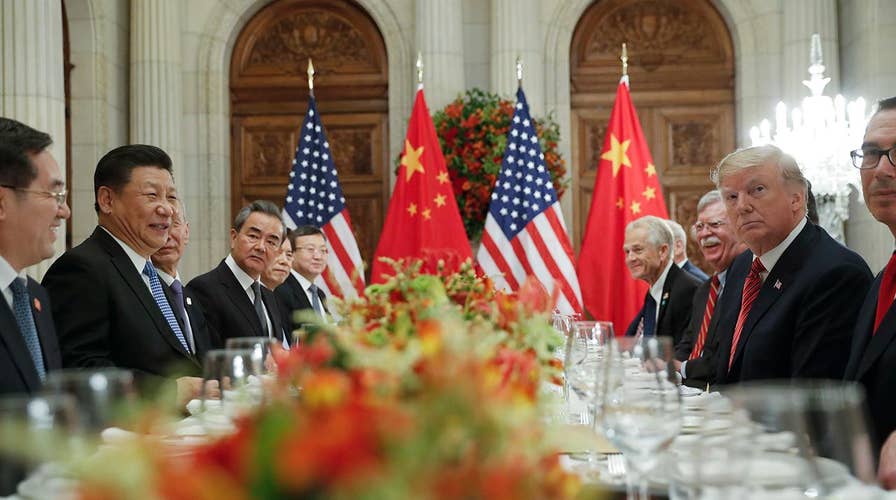US and China race for 5G domination
Officials caution if China overtakes the U.S. in any tech domain it will also jeopardize American national security interests; Gillian Turner reports.
ZTE is a Chinese-owned telecom giant and one of the world’s largest telecommunications equipment manufacturers. It makes cell phones and supplies parts to many American manufacturers. It has partnerships with over 150 wireless companies in 60 different countries.
Huawei is a Chinese tech company based in Shenzhen that sells smartphones and telecommunications equipment around the world. Earlier this year, it became the world's second-largest smartphone maker, behind Samsung.
We should be worried about them both.
CLICK HERE TO GET THE FOX NEWS APP
Here in America, as of 2018, ZTE is the fourth largest seller of mobile phones and the second largest of prepaid phones. ZTE has headquarters all over the world and is ingraining itself in a worldwide network of dependency on its products. Currently, it employs approximately 75,000 people worldwide.
In 2017, ZTE admitted that it had violated American sanctions against Iran and North Korea that forbid the sale of U.S. technology to those countries (ZTE smartphones use American-made tech). The U.S. fined ZTE $1.2 billion and later, banned American technology companies from selling their products to ZTE for seven years.
After the imposition of the U.S. fine and ban, the president of China made a personal appeal to the U.S. that ZTE be allowed to regain access to the American market. In June 2018, ZTE signed an agreement with the U.S. Department of Commerce that in “principle” would end the ban on American suppliers, but the details have yet to be finalized.
Now it is being reported that ZTE is helping Venezuela build a system akin to what ZTE built for China to monitor citizen “behavior” through telecommunications. A delegation from Venezuela was sent to ZTE’s main headquarters in China to learn how ZTE’s “smart card” developed for the Chinese government to track political, social and economic behavior of its citizenry could be adapted for Venezuela.
Amid this troubling news about ZTE, Meng Wanzhou, chief financial officer of Huawei, was arrested earlier this month in Canada on charges that Huawei did business in Iran in violation of U.S. sanctions and tried to cover it up.
Like ZTE, Huawei is seeking more control and access around the world and in America in particular. There is no real market in America for a Chinese-branded phone, so the next best thing to do is make itself integral to as many telecommunications products as possible so that manufacturers become dependent on its device component parts.
Once ZTE and Huawei embed themselves into the global telecommunications network, the door will open for them to use their equipment to surveil us all. Indeed these companies have the ability to turn a cellphone into a surveillance and spy tool, and the U.S. faces great danger from this.
America must be forever vigilant in guarding American companies and citizens from dependency on and surveillance by hostile foreign actors.
America is on notice. We know what ZTE and Huawei have done in violation of established U.S. sanctions, and we know what they are capable of doing and continue to do in violation of standards and practices at best, and privacy and espionage laws at worst. Both are a clear and present danger to America’s national security.
Today, America should NOT allow any telecommunications products to be sold or used in America that contain ZTE or Huawei devices or components. Period.

